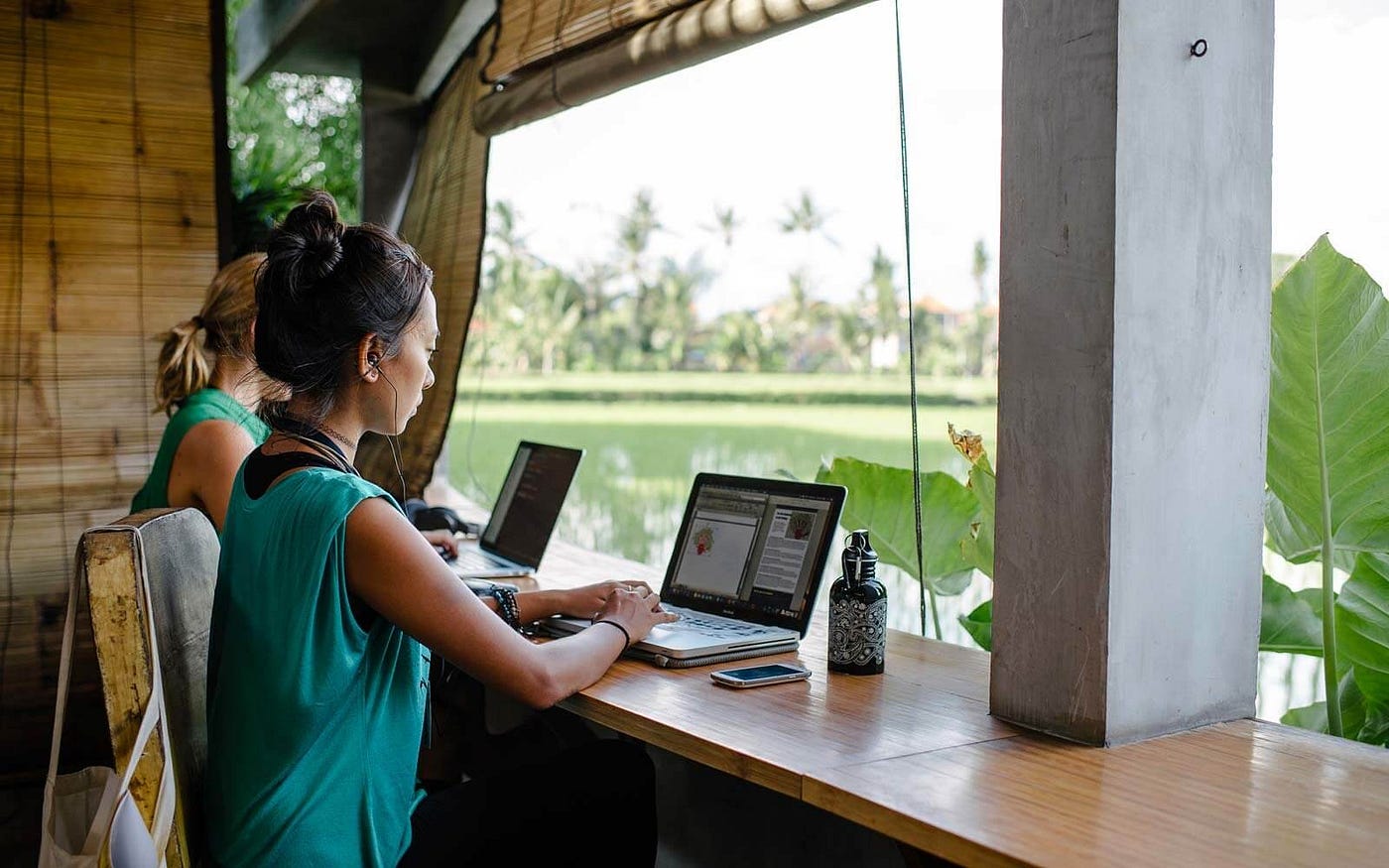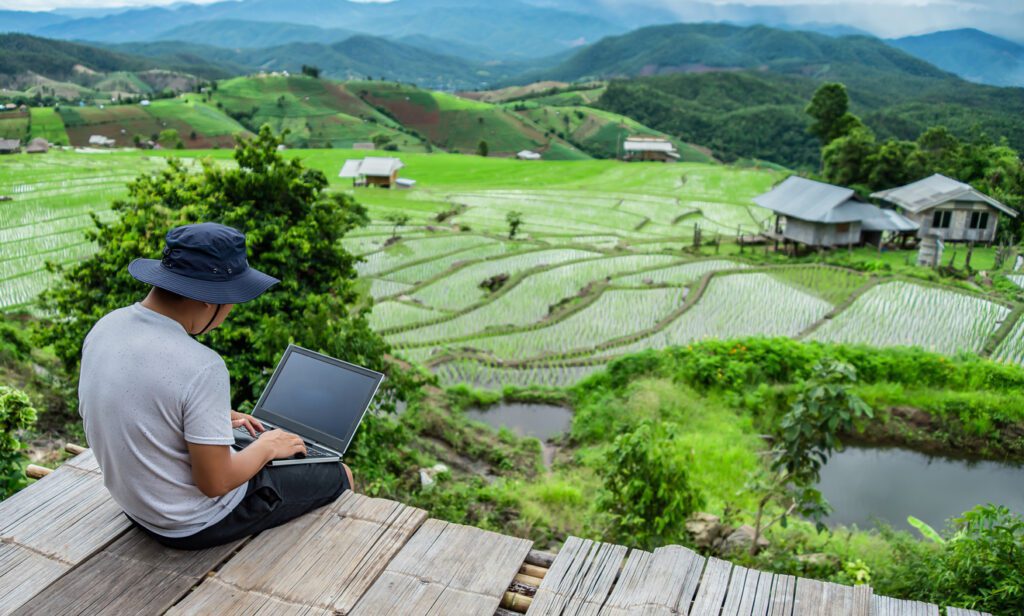CHIANG RAI – Global travel site Holidu has ranked Chiang Rai as the second safest city in the world for female digital nomads, with only Taipei, Taiwan, ranking higher. This recognition highlights Chiang Rai’s appeal to women seeking security, affordable living, and a stimulating work environment.
Its calm atmosphere, strong cultural identity, and modern conveniences have established Chiang Rai as a favourite among remote workers looking for a safe and friendly place to live and work.
Holidu’s survey reviewed 200 cities using sources like Numbeo and Nomads.com, focusing on key areas that matter to female digital nomads. The study checked how safe women feel walking alone, how welcoming locals are to women and international visitors, the gender ratio among digital nomads, and workplace protection from harassment.
Chiang Rai achieved a 93 percent score for women feeling safe when walking by themselves, placing it just behind Taipei and ahead of well-known cities such as Montevideo, Venice, and Penang.
Nattariya Thawiwong, Thailand’s Permanent Secretary for Tourism and Sports, expressed pride in this achievement. She credited the work of local agencies, the Tourist Assistance Centre, and the Tourism Police for keeping Chiang Rai secure for both residents and visitors.
Compared to busier cities like Chiang Mai, Bangkok, or Phuket, Chiang Rai offers a slower pace and a more genuine Thai experience. The city’s smaller scale and fewer tourists contribute to its reputation for safety.
Holidu’s data show that just 22 percent of digital nomads in Chiang Rai are women, so its strong safety ranking may encourage more to visit in future.

Chiang Rai’s Affordable Living
Chiang Rai draws digital nomads thanks to its modest living costs and comfortable lifestyle. Nomads.com reports an average monthly living cost of about US$1,121 in Chiang Rai, much less than in larger Thai cities, where expenses can be 20 to 30 percent higher.
Rental prices reflect this affordability. Decent flats or small houses can start at 5,000 THB (about $150) per month, offering value that’s tough to beat in bigger cities. For those after short-term stays, a night at Saikaew Resort, a tranquil lakeside spot, costs roughly 872 THB ($26) and includes air conditioning and high-speed internet. These affordable choices let digital nomads enjoy comfort without overspending.
Transport in Chiang Rai is kind to your wallet as well. Hiring a scooter, a favourite way to get around, ranges from 2,500 to 3,000 THB ($70-90 USD) a month. Alternatively, local buses, tuk-tuks, and shared songthaews offer low-cost options for getting around town.
Everyday items remain reasonably priced too, with local shops and markets selling goods at fair rates, avoiding the inflated prices found in tourist hotspots.
Northern Thai Flavours on a Budget
The local food scene is rich, affordable, and full of flavour, making Chiang Rai a treat for digital nomads who love to eat well. Street food stalls and small restaurants serve northern Thai dishes like khao soi (a creamy curry noodle soup) and sai ua (spiced sausage) for as little as 30–50 THB ($1–2 USD) per meal. These meals, with their fresh herbs and unique spices, offer a genuine taste of the region.
Chiang Rai’s choice of international food is growing, too. Western-style restaurants offer meals for around 200 THB ($6), which is half the price you might pay in Bangkok.
Plant-based options are easy to find, with places such as Kunda Vegan Vegetarian and Oasis Vegetarian serving vegan meals starting at 100 THB ($3). Fresh fruit from local markets, including pineapple, watermelon, and dragon fruit, usually costs under 50 THB ($1.50).
Cafés like Chivit Thamma Da Coffee House double as casual workspaces with fast Wi-Fi and a relaxing atmosphere. A smoothie here costs about 80 THB ($2.50), and the quiet setting makes it a favourite with remote workers looking for a productive spot to settle in for the day.

Natural Beauty and Unique Experiences
Chiang Rai’s surroundings offer a wealth of activities for nomads who appreciate nature or want to unwind after work. The area is packed with green mountains, peaceful rivers, and scenic waterfalls. Spots like Doi Chang and Phu Chi Fa deliver stunning views, perfect for walks, bike rides, or a peaceful break from the screen. The fresh air and tranquil scenery make it easier to keep a balance between work and relaxation.
Cultural attractions give Chiang Rai extra appeal. The famous White Temple (Wat Rong Khun), with its striking design, and the colourful Blue Temple (Wat Rong Suea Ten), highlight the city’s artistic side. These places help visitors connect with Thai culture and history. For wellness, local retreats such as Museflower Retreat & Spa offer yoga and meditation, supporting both mental and physical health.
The city’s compact layout makes it easy to get around on foot, while low crime rates help maintain a feeling of safety. Family-run shops and cafés give the city a friendly, neighbourly vibe, making it simple for newcomers to feel part of the community and build lasting friendships.
Strong Infrastructure and Supportive Community
Chiang Rai’s fast-developing infrastructure caters well to digital nomads’ needs. Internet speeds typically range from 20 to 50 Mbps in most hotels, cafés, and newer coworking spaces like The Hub Chiang Rai.
These spaces give remote workers a quiet, comfortable place to focus and a chance to connect with others. An expanding airport links the city to national and international routes, making travel convenient.
Thailand’s visa options help make Chiang Rai more accessible. Visitors can stay for up to 60 days on the tourist visa, with the possibility of a 30-day extension. The Destination Thailand Visa (DTV) offers a longer stay, and the country is discussing introducing a digital nomad visa.
Reliable healthcare, with trustworthy hospitals and clinics, adds another reason remote workers choose Chiang Rai for extended stays.
Earning the position of second safest city for female digital nomads is an achievement that sets Chiang Rai apart. Its mix of safety, value for money, and cultural variety gives women an ideal place to live, work, and explore.
Lily James, a web designer from Australia who moved from Chiang Mai, shares: “Chiang Rai is safe, affordable, and gives me the freedom to enjoy work while soaking up all the best of Thailand.”
As remote work grows in popularity, Chiang Rai is quickly becoming a top pick for women searching for a secure and inspiring place to call home—even if just for a short while.
With low costs, delicious food, and incredible scenery, northern Thailand’s Chiang Rai is proving itself as much more than a stopover. Here, digital nomads can build a rewarding lifestyle and make lasting memories.














